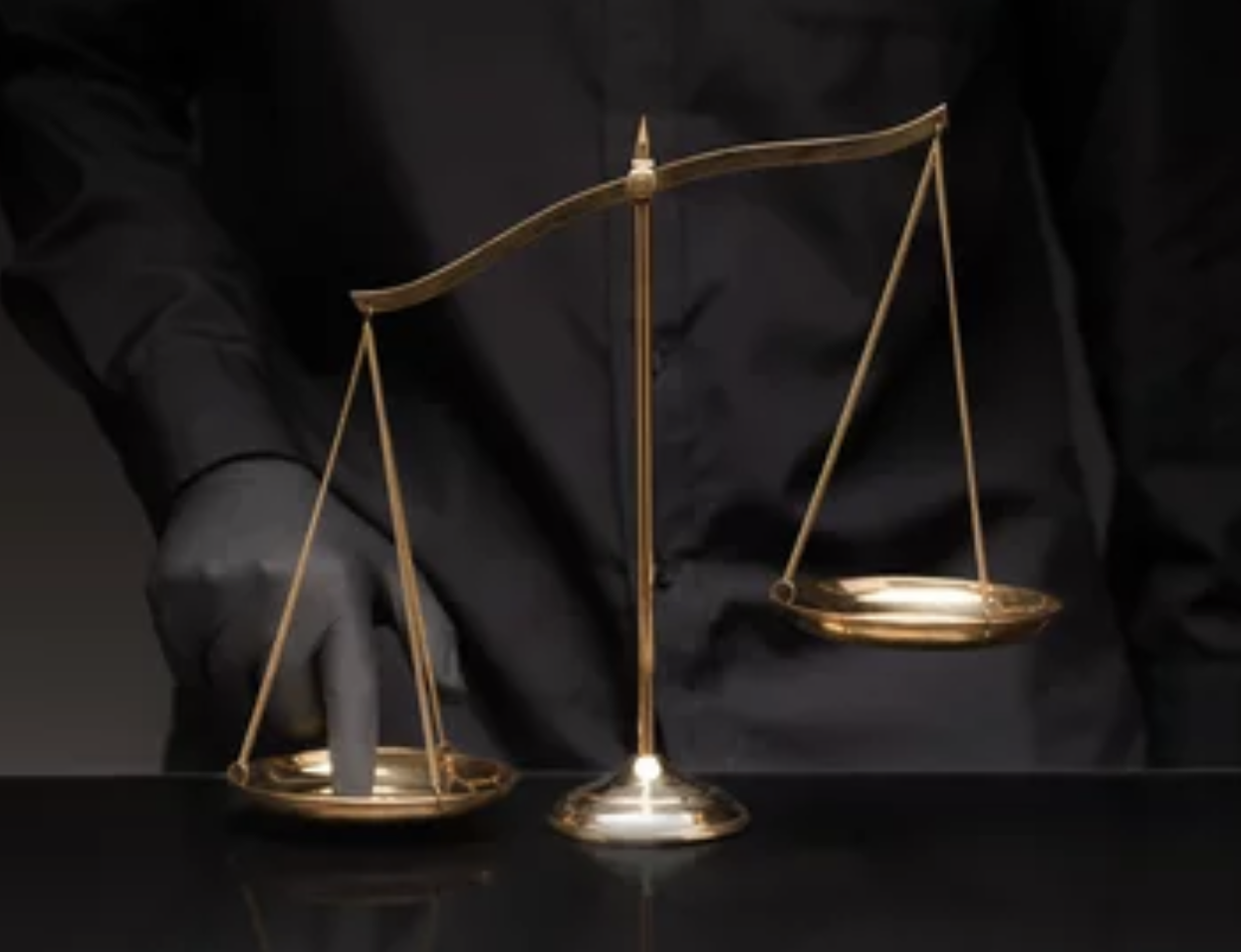Support for Hamas derives from the fashionable idea that power determines what is right and wrong.
When federal judges take the oath of office, they say: “I will administer justice without respect to persons, and do equal right to the poor and to the rich.” These words come from the Bible and reflect a key principle of justice in the American tradition, shaped by our Judeo-Christian heritage: Justice isn’t about power. Whether a party is right or wrong in a dispute doesn’t depend on that person’s identity and social station.
No longer is it so obvious. For many Americans today, justice—often with the modifier “social” before it—is precisely about power. Rejecting the biblical ideal codified in the judicial oath, our academics, intelligentsia and public figures have embraced the idea that power tells you all you need to know about who is right and who is wrong. This is clear as some of our best and brightest side with the Hamas terrorists in their war against Israel.
To those who believe in the biblical ideal of justice, defending Israel’s right to destroy those who commit atrocities against innocents isn’t simple, but involves a moral analysis that yields a clear conclusion. One must look at who acts virtuously and who acts viciously. Though no country is virtuous all the time, Israel seeks peace and in war doesn’t specifically target civilians. Israel holds no kidnapped babies, nor does it steal billions of dollars of foreign aid to build tunnels where terrorists can hide while using women and children as human shields. Hamas is unfathomably evil, by any traditional measure, to Israelis and Gazans. Its barbarism is unjustifiable, even if Palestinians have legitimate grievances against Israel.
But to those who believe power analysis is the key to justice, siding with Palestinians—even to the point of cheering Hamas’s atrocities—is simple. Israel is powerful, and Palestinians aren’t. Therefore, whatever Palestinians, even terrorist groups that don’t speak for all Palestinians, do is justified. Among those who believe the trendy logic of the academy, justice is done with respect to persons; doing equally right to rich and poor wrongly entrenches the power of the rich.
Recently, a video surfaced of a brave young woman speaking in Israel’s defense at Columbia University. She began her remarks with the obligatory announcement of identities: “I am an African-American, Native American, Jewish woman.” She then exposed her fellow students’ hypocrisy on issues of identity. Though she had been led to believe that her classmates cared about members of all marginalized groups, she had “learned that amongst my peers who openly advocate for the destruction of the one Jewish state, the desire to uplift and accept me is restricted only to the identities of mine they deem worthy.” She deserves applause for her ability to see through the farce of identity-as-justice, especially when manipulated to exclude Jews when convenient.
To maintain the principle of equal justice for all, students must not be trained to show they belong to a “marginalized group” for their arguments to be treated as legitimate. But campus orthodoxy demands exactly that. Young people are being programmed to believe that identity is itself an argument—exactly the fallacy that leads to demonizing Israel and Jews around the world merely because they have been successful by some measures. This pseudointellectual dogma has no more place in the academy than the notion that some races are superior or inferior to others.
Judges have been understandably reluctant to condemn this worrisome trend. But doing so should be uncontroversial for all who took that oath. Truth and rightness don’t depend on race, color, nationality, sex, religion, net worth or power. Murdering innocents is always wrong; so is cheering it on. That is the view we are sworn to bring to the courtroom. Maintaining it is critical to the rule of law.
Though advocates of the new justice now target Jews and Israel, their eyes are trained on upending the fundamental principles of a free and fair society. Ignoring how our educational institutions are training young Americans not only turns a blind eye to the moral perversity among those who celebrate terrorism. It also fills our country with injustice.
Judge Solomson serves on the U.S. Court of Federal Claims. Mr. Fortgang is his law clerk.
To see this article in its entirety and to subscribe to other articles like it, please choose to read more.
 Listen Online
Listen Online Watch Online
Watch Online Find a Station in Your Area
Find a Station in Your Area










 Listen Now
Listen Now Watch Online
Watch Online
